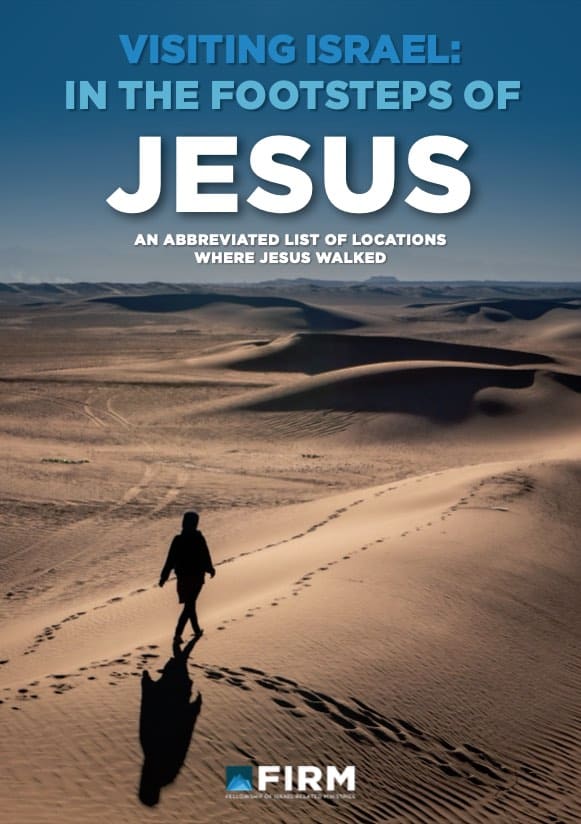Wilderness Meaning in the Bible
Wilderness appears in the Bible regularly and, what is more, it is often the background of significant events.When God freed His people from slavery in Egypt, He didn’t bring them straight into the Promised Land. He took them on a journey first. And not just any journey – He took them into the wilderness for 40 years. What is the meaning of the wilderness?
At first, that idea does not sound pleasant at all. The wilderness? Why should we spend any time there? It’s hard, it’s lonely, and its stillness is deafening. But God had a plan.As the Israelites wandered through the desert, God revealed Himself to them more than ever before.
Download FREE Prayer and Fasting PDF

A Path through… into the Wilderness
We avoid the uncomfortable in life, because we think we have very legitimate reasons for doing so. When our life hits the “desert”, a dry or lonely period, it is very hard to recoup. Our hearts and minds feel weary, burnt out, and everything seems lifeless or pointless. In most extreme cases, even taking a single step out the door seems to require an extreme amount of effort.
And yet, the desert is not presented as a hopeless place in the Bible. God had used the desert and the wilderness to speak with His people. If you are in the middle of a desert season, you’re actually not alone.
A Place of Encounter
It is important we notice the wilderness in the Bible. God spoke to Abraham while he was in the wilderness. God brought the Israelites into the wilderness, because He wanted to speak to them at Mount Sinai. This is where He spoke to Moses.In the wilderness God met with Elijah. It was in the desert when God spoke to John the Baptist, who spent most of his life in these rough conditions. He became known as the Voice Calling in the Wilderness.
Each of these stories is filled with miracles. Their seasons were not wasted – on the contrary, God used these difficult times for something meaningful and powerful. In the wilderness God was present, and in the desert, He made Himself known.
Hebrew Meaning of the Word “Desert”
The Hebrew language, which a big portion of the Bible was written in, carries so much depth. We can sometimes lose the complex meaning of a word, if we only look at its translation.Many seemingly different words can actually be connected in Hebrew, because they have a common root – three core letters.
The Hebrew word for the desert is MIDBAR. Because there are no vowels in Hebrew, the letters that spell it out are M-D-B-R. Coincidentally, this is also how you spell another Hebrew word, MEDABER – to speak.
The wilderness of the Judean hills is where the Holy Spirit sent Jesus before the start of his public ministry. He was in the desert so that God could have a conversation with him.
Jesus came to the midbar – the desert, so that God could medaber – speak to him!
Jesus didn’t wander into the desert by accident. He went there on purpose, because He wanted to hear from God. This shows us once again how deep the meaning of wilderness is in the Bible.Abraham, Moses, Isaiah, Elijah – none of them were in the wilderness by accident. God wanted to speak with them, and what better place for an important meeting than the one where there are no distractions.

Letting Go in the Desert
In our Western cultures, we are very used to our comforts. Even as followers of Jesus, we try to avoid “the desert”. We don’t like when life gets hard, or barren, or lonely. The wilderness makes us feel isolated, so we do what we can to escape it.But what if we asked God about His timing – when is the right time to move on? Is He trying to tell us something?
The negative approach to the wilderness is challenged even in the Gospels. Jesus with His disciples often chose the wilderness for rest or some quality time, when He told them about the Kingdom of God.In these moments, Yeshua was not being pulled in every direction by those who needed His help. And it was in the desert where Jesus was baptized! There, God announced to the whole world that He loved His Son!
Facing the Discomfort of the Wilderness
Young David was running through the desert when he was trying to flee from King Saul. He was hiding in caves and you could say he was in a very low place in his life.But it was in that wilderness, where he experienced closeness and intimacy with the Lord. David wrote dozens of poems and songs, pouring out his heart. And he knew God was listening, too.
We all face things in our lives that feel like the wilderness.
Maybe like David we can’t seem to escape our problems. Like Abraham, we are not sure where to go or what to do. Maybe like Moses, we feel overwhelmed with our responsibilities. Or like Elijah, we are simply burnt out.
When the Bible Gives Wilderness Meaning
Although in hardship we want to avoid the discomfort of the desert, it is in fact an invitation to an encounter. God wants to speak to us.Thanks to Scripture we know for a fact that in the desert is where the presence of God is most prevalent.
Jesus chose the wilderness, because He knew that, while being alone and tempted, there was strength and authority to be gained by being alone with His Father.No matter how isolated you may feel today, God wants to come into your midbar – desert, be near you, and medaber – speak to you. He is in the midst of your wilderness.
Ever wondered where God is when life gets hard? Watch IsraelU Episode 1 below and find out!

Visiting Israel: In the Footsteps of Jesus: Free PDF Download
It is quite exciting to think that while touring Israel you are walking on the same land that Jesus did.
Whether it is the reason why you came to Israel or not, it is worth noting which locations were significant to His life and ministry. God chose this piece of land to send His Son to live on earth. Many archeological findings confirm the locations mentioned in the Bible.
Articles Related to the Wilderness
Estimated reading time: 5 minutes